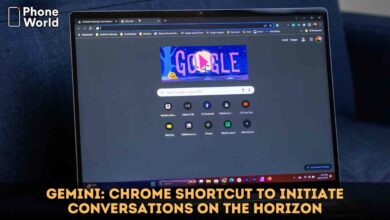Google to Provide Personal Information About Who Watched Specific YouTube Videos

If you’ve ever joked about your search or viewing history getting you on a list, that concern might be more real than you think. Recently unsealed court documents, as reported by Forbes, reveal that Google was ordered to provide names, addresses, phone numbers, and user activity of YouTube accounts and IP addresses that watched specific YouTube videos. This request was part of a broader criminal investigation conducted by federal authorities.
The undercover police sent these videos to a suspected cryptocurrency launderer using the username “elonmuskwhm.” In their conversations with the bitcoin trader, investigators sent links to public YouTube tutorials on drone mapping and augmented reality software. These videos amassed over 30,000 views, presumably from thousands of users unrelated to the case.
Google to Provide Personal Information About Who Watched Specific YouTube Videos
Federal investigators mandated Google to quietly hand over all such viewer data for the period from January 1 to January 8, 2023. However, it’s unclear if Google complied with this request.
This mandated data retrieval raises privacy concerns among experts. Federal investigators argued that the request was legally justified, claiming the data would be relevant to the ongoing criminal investigation by providing identification information about the perpetrators. Similar justifications have been used by other police forces across the country, such as in a case from New Hampshire where police requested viewer information for specific time stamps during live streams of bomb threats on YouTube.
Google’s spokesperson, Matt Bryant, stated that they have a rigorous process to protect the privacy and constitutional rights of users while supporting law enforcement. They review each demand for legal validity, pushing back against overbroad or inappropriate demands for user data, sometimes objecting entirely.
Privacy experts are concerned about the precedent this court order sets, citing worries about the protection of the First and Fourth Amendments.
Albert Fox-Cahn, executive director of the Surveillance Technology Oversight Project, described it as a troubling trend where government agencies are turning search warrants into digital dragnets, calling it unconstitutional and alarming.
Advocates have long called for Google to be more transparent about its data-sharing policies, particularly with ongoing arrests of protestors and the increasing criminalization of abortion. In response, Google updated its privacy policies in December, allowing users to save location data directly to their devices rather than the cloud and shortening the retention time for such storage. These changes also indirectly affected law enforcement’s use of Google location data to target suspects.
Over the past year, Google has faced legal challenges, including two state supreme court cases questioning the constitutionality of keyword search warrants that force sites to disclose an individual’s internet search data.
PTA Taxes Portal
Find PTA Taxes on All Phones on a Single Page using the PhoneWorld PTA Taxes Portal
Explore NowFollow us on Google News!





